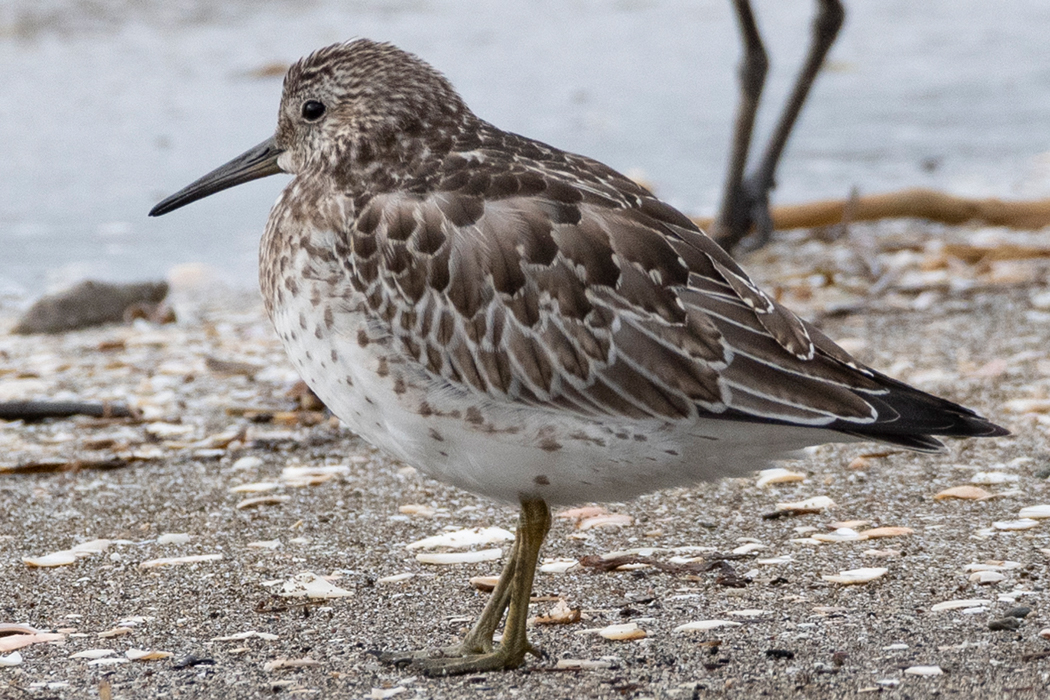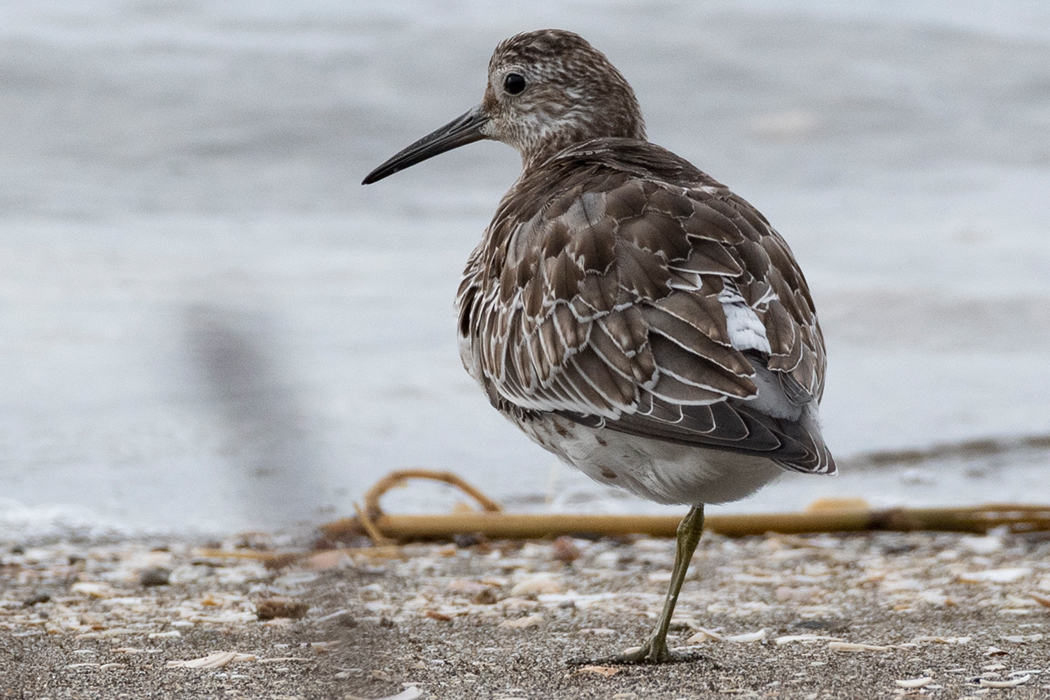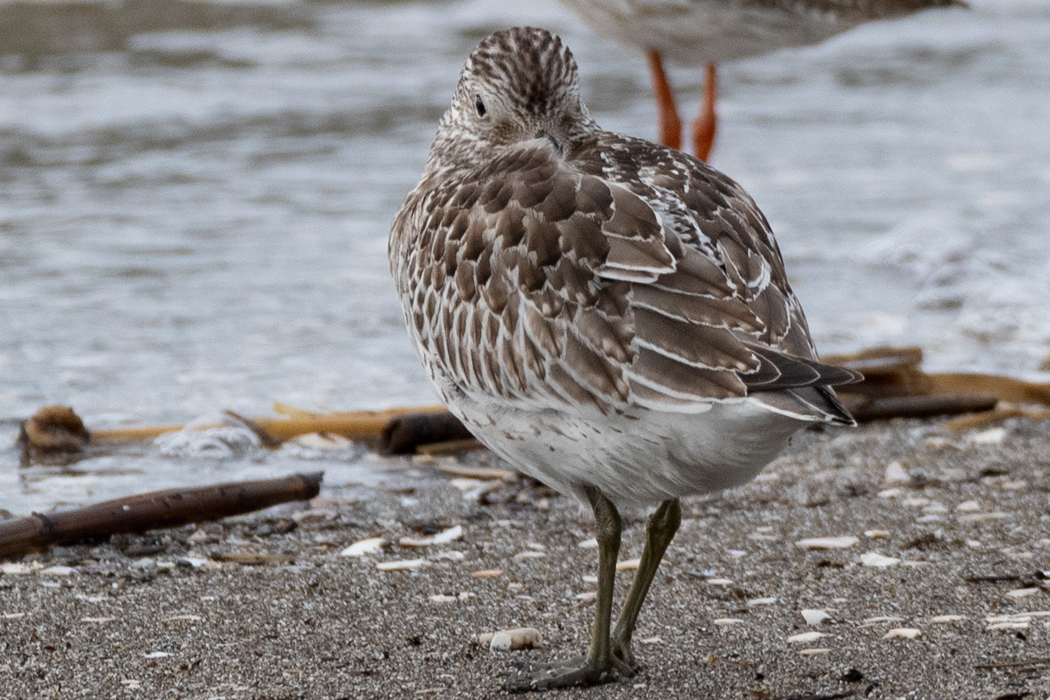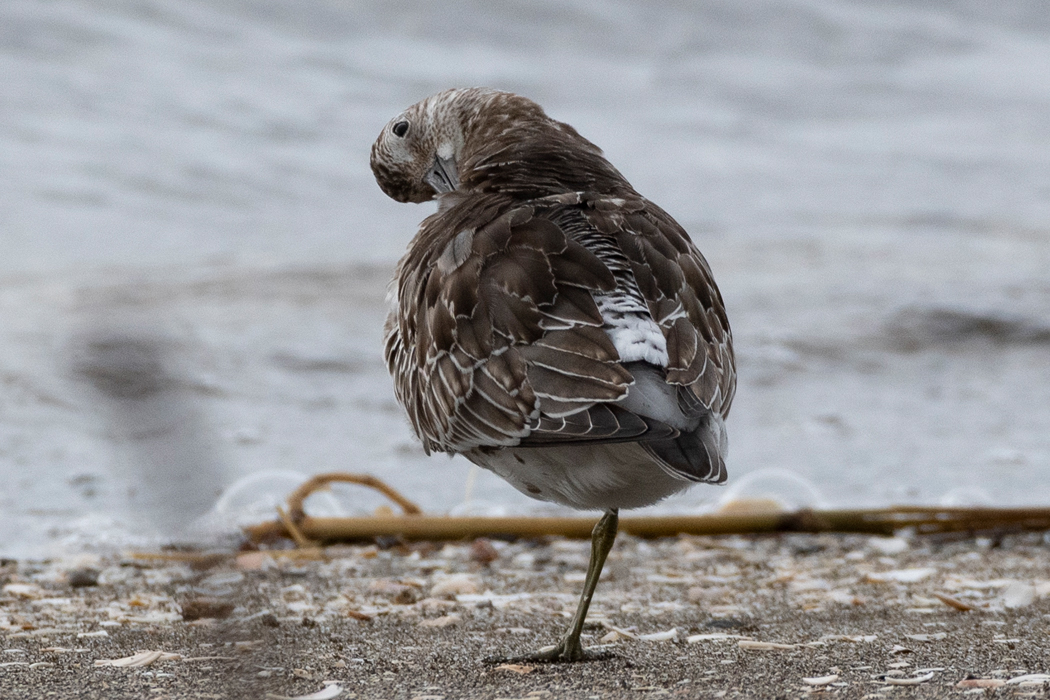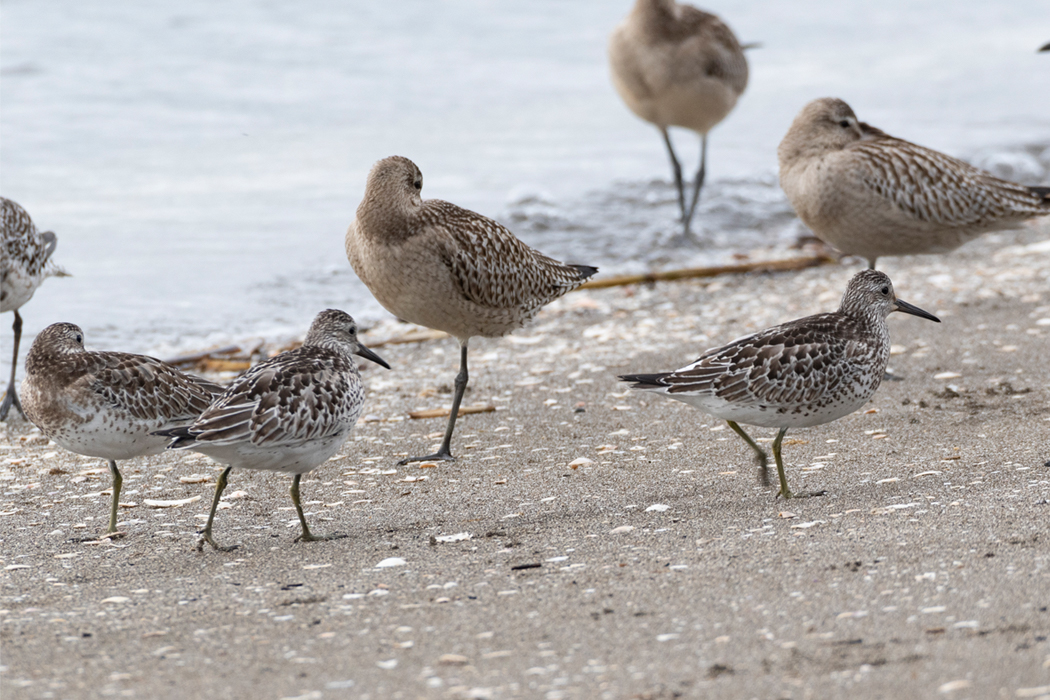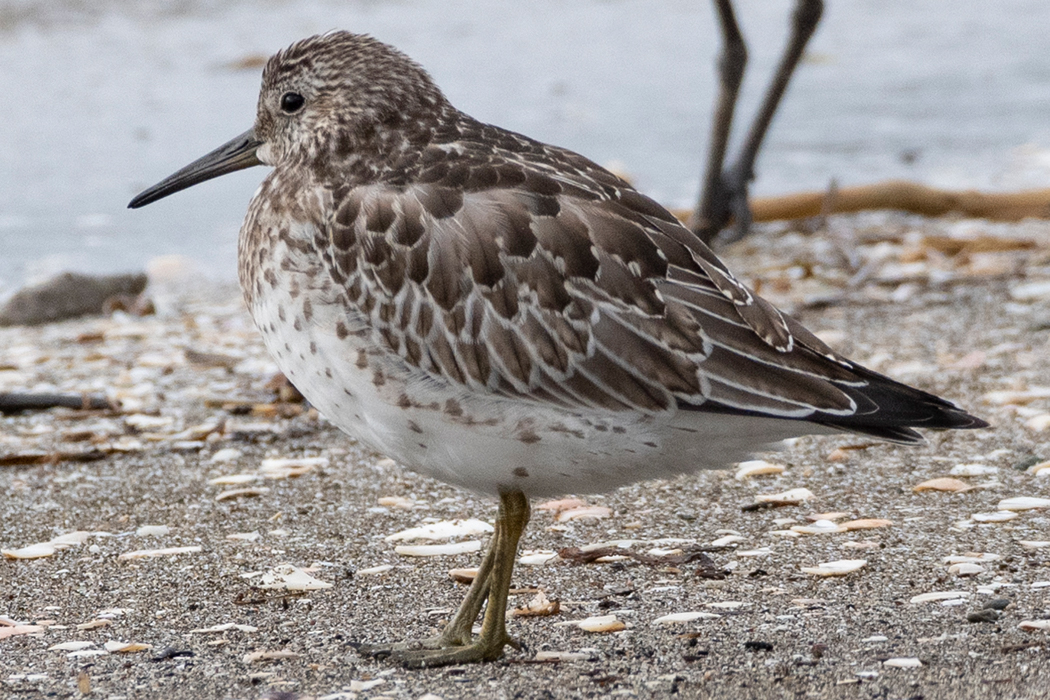
Great Knot
A little fat and round shape.
| Scientific name | Calidris tenuirostris |
| English name | Great Knot |
| Japanese name | 尾羽鷸 |
| Classification | Aves |
| Classification details | Charadriiformes Scolopacidae |
| Full length | about 28cm. |
| Distribution | Flying all over the country as a migratory bird. |
Characteristics
A round-shaped snipe with a total length of just under 30 cm. The back is black-brown with white feathers. In summer plumage, the back is reddish brown. There are dense black spots from the throat to the belly.
At first glance, the feathers on the back have a clear contrast between white and black, and each pattern looks large.
The beak is black and longer than the head. The legs look yellowish-greenish gray.
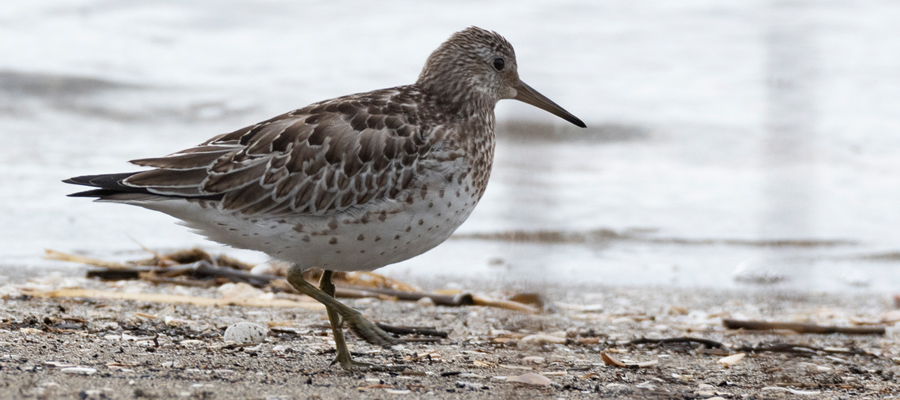
Ecology
As migratory birds, they fly all over Japan in spring and autumn.
They prey on shellfish and crustaceans on tidal flats and river mouths.
Habitat
Sanbanze in autumn
I photographed this bird on the beach at high tide in the early morning of Sanbanze in September.
They were relaxing on the shoreline, along with some great curlews and dunlins.
They were not foraging, but rather preening their feathers and walking a little together.
After a while, they were attacked by a peregrine falcon and flew off into the ocean.
Pictures
Introducing a picture of Great Knot.
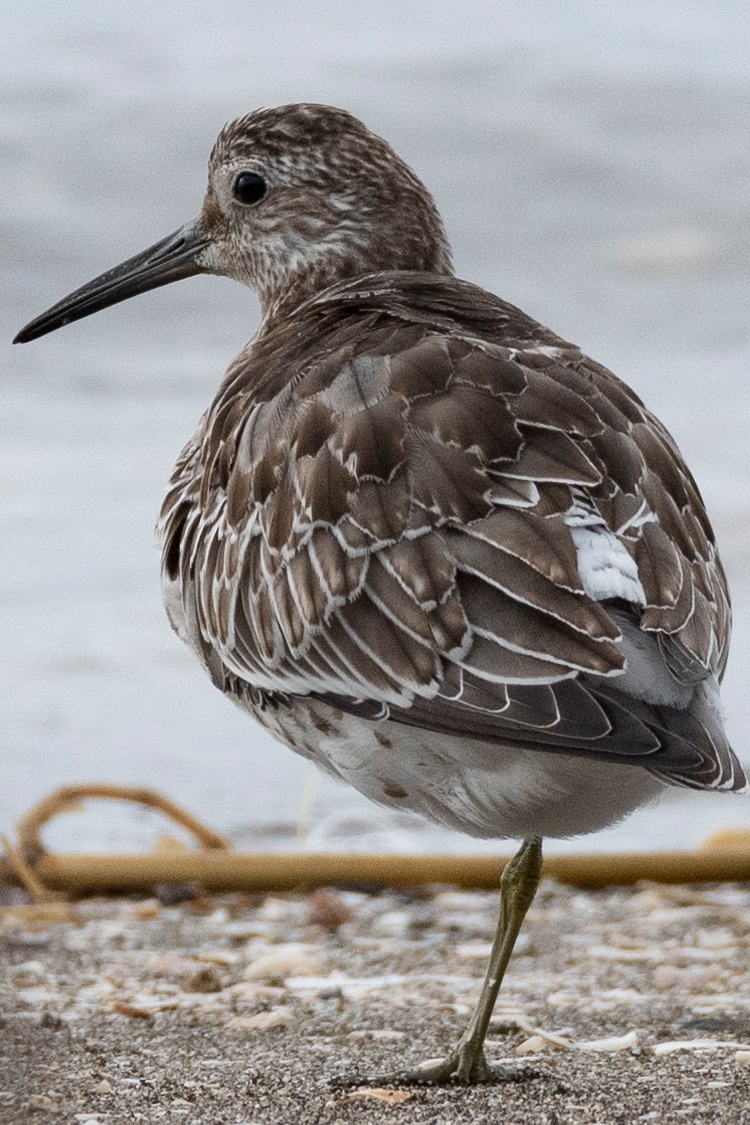
Picture book

Pale Thrush
Lurking in winter bushes.......ead more.

Hydrangea
ornamental flower with developed calyx. "Patient love".......ead more.
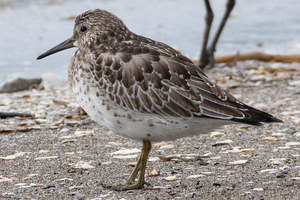
Great Knot
A little fat and round shape.......ead more.

Bonin White-eye
Black triangular crest surrounds eyes.......ead more.

Dhiho's seahorse
Wrapping its body in seaweed.......ead more.
